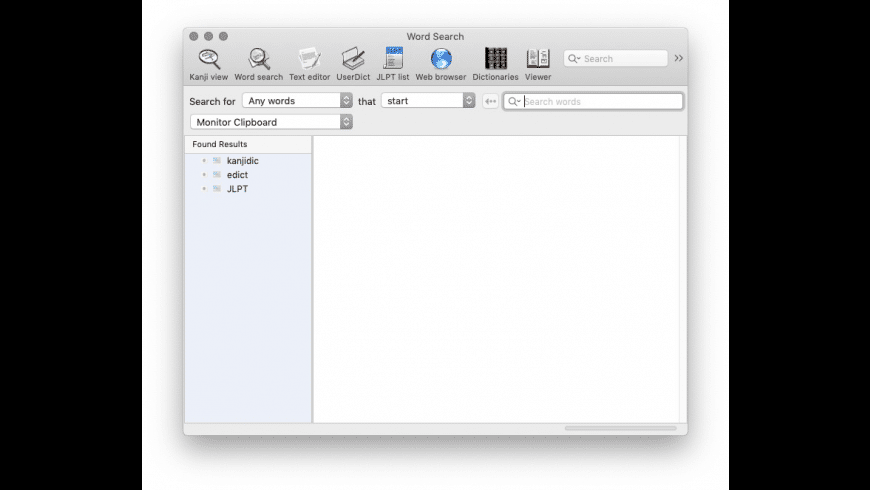Software Packages and Servers using the JMdict and EDICT Files
(This list is far from complete. Feel free to add to it.)
NB: Many of the packages & servers listed here use or include older versions of the files.
EDICT
An alternative solution is to download a ZIP archive with Jedicut 2.4.2 containing all Jedicut files, and to drop them into the directory of your choice. Warning: with this method you can have error messages under certain versions of Windows, at the launch of Jedicut. These messages are related to the presence of the io.dll. Originally JEDict was developed as Japanese-English dictionary, therefore it supports all conceivable methods of kanji lookup. JEDict has internal text editor, multilingual user dictionary, JLPT list viewer and web browser with contextual word translation.


- SERVERS
Jedect
- diku - a very simple server
- jTango, another basic server
- PSP's basic server (old files used)
- FOKS (Forgiving Online Kanji Search) - compensates for mistakenly guessed readings
- nasty mangled romaji server at freedict
- the AnimeLab server
- NihongoResources server
- Grzegorz Bober's Tangorin (uses the Tanaka Corpus too.)
- Heartful Dictionary at the Toyohashi University of Technology
- JapanOD server, which has keitai options
Medictag.com
- PACKAGES
- Rikai-derived Mozilla plugin
- Similar Rikaichan plugin for Firefox/Thunderbird
- Popular JQuickTrans (Windows)
- JWPce (free Windows WP with integrated dictionary)
- xjdic - a clunky X11 terminal window program for Linux/Unix
- GJiten - a rather cooler GUI-based Linux/Unix program
- MacJDic for Macs, of course
- UniDict, also for Macs
- JEDict for Macs
- WordLookup, for Macs
- Tensai, for Macs
JMdict
Medicta
- Petteri Kettunen's tkjmdict
- Cory Nelson's Gozoku (formerly JMDict#)
- Jean Soulat's SmartKanji.net free on-line multilingual dictionary with text parser. Also included: links to Wieger's etymological lessons and two dictionaries of Chinese/Japanese Buddhist terms.
- JEDict for Macs
